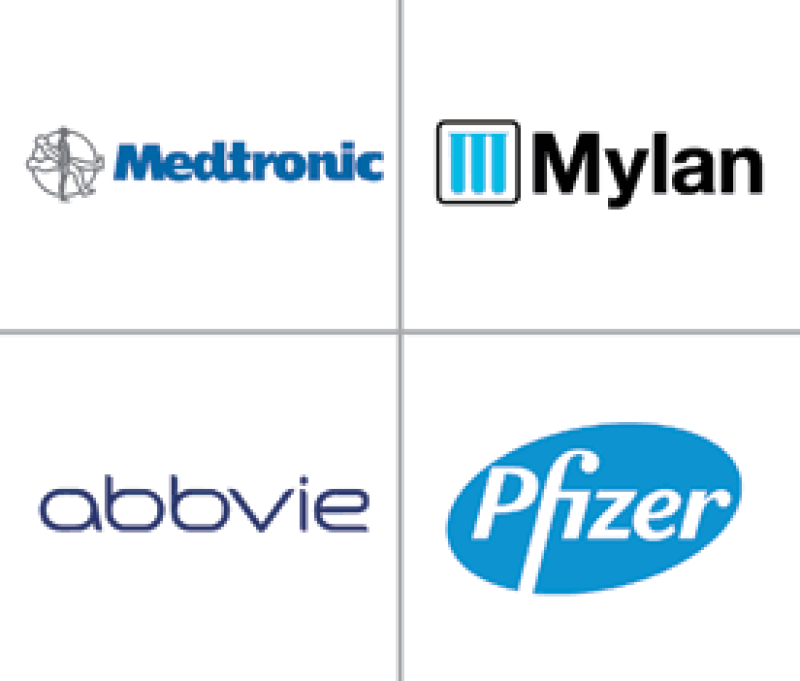
|
While issues of tax fairness and tax morality cannot be said to have taken off as spectacularly as in other parts of the world, there have been a number of sparks that have reignited these themes in the US. Chief among these in 2014 was the restructuring method known as tax inversion. A typical US inversion involves the acquisition of, or merger with, an overseas company in a country with a corporate tax rate lower than the US's and, post-transaction, moving the newly-incorporated company's headquarters to the overseas jurisdiction. Of course, there are business expansion motives for such a move, but the primary tax benefit for US companies in pursuing this strategy is that by moving the new company's headquarters, they can escape the punitive US tax code, which levies a high tax rate and operates a worldwide system of taxing income.
With cash trapped offshore by the US system, highly mobile US pharmaceutical companies have looked at the inversion option during 2014 as a way of utilising such cash for acquisitions without getting hit with tax on repatriation.
"When earnings are trapped overseas, it's much more efficient to build a facility overseas," Susan Kilby, chairwoman of British drugmaker Shire explained to Fortune .
Between 1983 and 2004 there were 29 inversions out of the US, but in the decade following almost 50 companies have restructured using the method. The frenzy this tax transactional technique has caused in Washington this year has been phenomenal.
Pharmaceutical companies such as AbbVie, Medtronic, Mylan and Pfizer have all considered inverting in the past 12 months. These considerations led toa fierce backlash from certain figures on Capitol Hill, and political rhetoric has skewed the debate dramatically.
The inversions "epidemic" or "virus" (if you listen to Ron Wyden, US Senate Finance Committee chairman) is actually far from that. If you consider that there have been roughly 70 instances of US companies inverting in a 30-year period, some quick maths and a basic understanding of the word "epidemic" tells us the description is tenuous at best. To reinforce the point, two of the headline-grabbing companies listed above – AbbVie and Pfizer – did not even complete an inversion.
However, vocal representatives of these pharmaceuticals, such as Mylan CEO Heather Bresch and AbbVie president Rick Gonzalez – much like Apple's Tim Cook and Google's Eric Schmidt, who earned themselves a place in last year's list for similar reasons – defended their companies' decisions and called on legislators to reform the US tax code if they did not like it.
"When I hear things like "unpatriotic," I just chalk it up to a lot of political rhetoric. The reality is the move we are making will maintain the jobs that we not only have here in the US but allow us to continue to expand," Bresch told Fortune, adding that the other option "is being acquired by a foreign entity that is going to use the US as a synergy. That is lost on most."
A statement from AbbVie after US Treasury Secretary Jack Lew put together the Treasury Notice restricting the benefits of inverting said the notice "reinterpreted longstanding tax principles in a uniquely selective manner designed specifically to destroy the financial benefits of these types of transactions".
Gonzalez used his announcement of the AbbVie-Shire deal termination to call for broader tax reform, criticising the Obama administration in the process for "creating an environment of risk and uncertainty".
"The unprecedented unilateral action by the US Department of the Treasury may have destroyed the value in this transaction, but it does not resolve a critical issue facing American businesses today," said Gonzalez. "The US tax code is outdated and is putting global US-based companies at a disadvantage to foreign competitors in an area of critical importance, specifically investing in the United States. Comprehensive tax reform is essential to create competitiveness and to stimulate investment in the economy."
Bresch also tried to see the positives amid the furore.
"If all of this lights a fire on how dysfunctional and uncompetitive our system is then it was well worth it because it needs to be fixed," she said.
Leading business figures such as Bresch and Gonzalez must continue to maintain a strong pro-tax reform stance throughout 2015 and beyond to ensure their voices are part of discussions that will influence the shape of the US tax code for decades to come.
If the threat of US multinationals relocating overseas is what it takes to persuade Capitol Hill to find a bipartisan tax reform solution, the inversions drama will have served a valuable purpose, vindicating the inclusion of US pharmaceutical inverters on this list.
The Global Tax 50 2014 |
||
|---|---|---|
| Gold tier (ranked in order of influence) 1. Jean-Claude Juncker 2. Pascal Saint-Amans 3. Donato Raponi 4. ICIJ 5. Jacob Lew 6. George Osborne 7. Jun Wang 8. Inverting pharmaceuticals 9. Rished Bade 10. Will Morris Silver tier (in alphabetic order) Joaquín Almunia • Apple • Justice Patrick Boyle • CTPA • Joe Hockey • IMF • Arun Jaitley • Marius Kohl • Tizhong Liao • Kosie Louw • Pierre Moscovici • Michael Noonan • Wolfgang Schäuble • Algirdas Šemeta • Robert Stack Bronze tier (in alphabetic order) Shinzo Abe • Alberto Arenas • Piet Battiau • Monica Bhatia • Bitcoin • Bono • Warren Buffett • ECJ Translators • Eurodad • Hungarian protestors • Indian Special Investigation Team (SIT) • Chris Jordan • Armando Lara Yaffar • McKesson • Patrick Odier • OECD printing facilities • Pier Carlo Padoan • Mariano Rajoy • Najib Razak • Alex Salmond • Skandia • Tax Justice Network • Edward Troup • Margrethe Vestager • Heinz Zourek |
||









